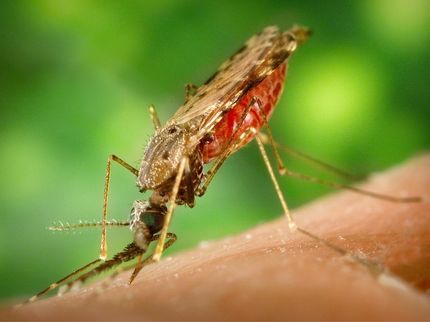First-of-its-kind vaccine expands malaria protection for pregnant women
Sanaria® PfSPZ Vaccine protects women against malaria before and during pregnancy for at least two years
Advertisement
In a report a team led by investigators at the malaria Research and Training Center (MRTC), Bamako, Mali; the Laboratory of Malaria Immunology and Vaccinology (LMIV), National Institute of Allergy and Infectious Diseases, National Institutes of Health; and Sanaria Inc. describes the durable protective efficacy against malaria shown by Sanaria® PfSPZ Vaccine when administered to women prior to pregnancy. The two clinical trials, led by Dr. Halimatou Diawara (MRTC) and Dr. Sara Healy (LMIV), were conducted in Ouélessébougou, Mali from 2018-2021. For the first time, immunization with a malaria vaccine has been shown to protect mothers from malaria during pregnancy and to protect for two transmission seasons without booster doses of vaccine.
Malaria during pregnancy is an enormous problem. Plasmodium falciparum (Pf) infection during pregnancy causes up to an estimated 50,000 maternal deaths and 200,000 stillbirths in Africa each year. “Better protection for the mother and developing fetus is urgently needed” said Professor Abdoulaye Djimde, Director of the Malaria Research and Training Center at University of Bamako. “PfSPZ Vaccine has an excellent safety profile and our teams have worked with NIH and Sanaria partners over the years to demonstrate its efficacy in Mali, where seasonal malaria transmission is intense.”
This trial recruited women who were planning to get pregnant in the coming year. After immunization, birth control was stopped in most and the women were followed through two malaria transmission seasons over nearly two years. Those who became pregnant were followed throughout their pregnancies, and newborns were followed up to their first birthday to measure long-term outcomes. The study included two vaccine groups that received low and high doses of the vaccine, respectively (100 women per group) and a placebo group receiving normal saline (also 100 women).
PfSPZ Vaccine was well-tolerated and safe for both the mothers and their offspring, with no differences evident in the rate or severity of adverse events compared to placebo. Vaccine efficacy against infection with malaria parasites in the lower dose group was as high or higher during the second year (61%) as during the first year, without boosting, a first for a malaria vaccine. Over the two seasons, efficacy against infection with malaria parasites during pregnancy was 57% in this group. In the high dose group, efficacy against malaria infection was 86% during the first year in women who became pregnant.
An unexpected finding was that pregnancy was detected earlier in the vaccine group than placebo. Although this effect had marginal statistical significance, it suggested that malaria infection likely aborts many early pregnancies before they are detected. By preventing these early infections, vaccinated women appeared to become pregnant sooner.
Original publication
"Protection from malaria after pre-conception PfSPZ Vaccine"; The Lancet Infectious Diseases 2024.























































